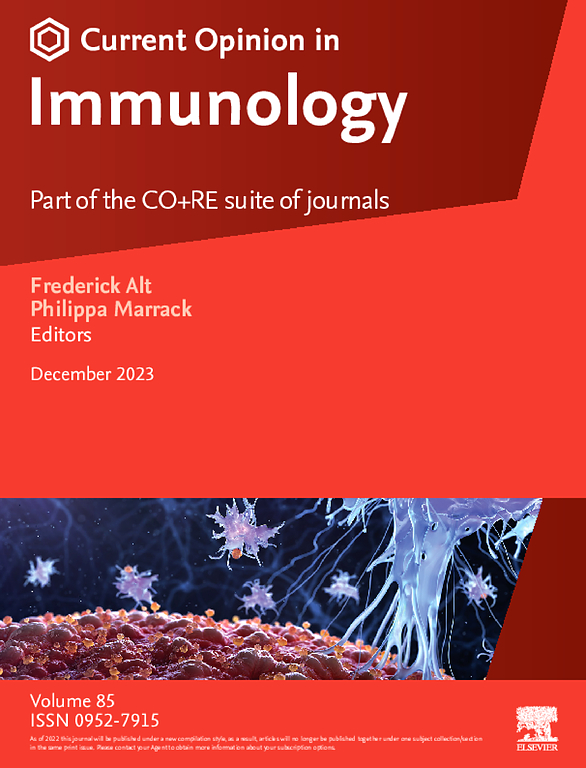1型糖尿病的肠道微生物组:用转化进展架起儿童早期暴露的桥梁
IF 5.8
2区 医学
Q1 IMMUNOLOGY
引用次数: 0
摘要
1型糖尿病(T1D)是由T细胞介导的胰腺β细胞破坏引起的,需要终生胰岛素治疗和血糖监测。虽然遗传风险,特别是HLA II型,已经得到了很好的证实,但T1D发病率的上升和发病时间的提前提示环境因素。小鼠模型显示微生物组改变影响β细胞自身免疫,人类研究将微生物组组成与T1D联系起来,尽管具体的微生物调节因子尚未确定。我们研究了宿主-微生物组的相互作用,包括肠病毒在调节胰岛自身免疫中的作用。微生物对糖尿病作用的机制发现已经从小鼠模型研究中出现。我们考虑临床应用,包括微生物群靶向治疗和微生物群免疫串扰的生物标志物。未来的研究应该利用多组学方法整合微生物、遗传、环境和免疫数据。结合免疫学、微生物学和临床元数据的协作努力将推动T1D的发现和精准医学。本文章由计算机程序翻译,如有差异,请以英文原文为准。
The intestinal microbiome in type 1 diabetes: bridging early childhood exposures with translational advances
Type 1 diabetes (T1D) results from T cell–mediated destruction of pancreatic β-cells, requiring lifelong insulin therapy and glycemic monitoring. While genetic risk, particularly HLA class II, is well established, rising T1D incidence and earlier onset suggest environmental modifiers. Mouse models show that microbiome alterations influence β-cell autoimmunity, and human studies link microbiome composition to T1D, though specific microbial regulators remain unidentified. We examine host–microbiome interactions, including studies implicating enteroviruses in modulating islet autoimmunity. Mechanistic discoveries of microbial effects on diabetes have emerged from mouse model studies. We consider clinical applications, including microbiota-targeted therapies and biomarkers of microbiome-immune crosstalk. Future research should integrate microbial, genetic, environmental, and immune data using multi-omic approaches. Collaborative efforts combining immunology, microbiology, and clinical metadata will drive discovery and precision medicine in T1D.
求助全文
通过发布文献求助,成功后即可免费获取论文全文。
去求助
来源期刊
CiteScore
13.30
自引率
1.40%
发文量
94
审稿时长
67 days
期刊介绍:
Current Opinion in Immunology aims to stimulate scientifically grounded, interdisciplinary, multi-scale debate and exchange of ideas. It contains polished, concise and timely reviews and opinions, with particular emphasis on those articles published in the past two years. In addition to describing recent trends, the authors are encouraged to give their subjective opinion of the topics discussed.
In Current Opinion in Immunology we help the reader by providing in a systematic manner: 1. The views of experts on current advances in their field in a clear and readable form. 2. Evaluations of the most interesting papers, annotated by experts, from the great wealth of original publications.
Current Opinion in Immunology will serve as an invaluable source of information for researchers, lecturers, teachers, professionals, policy makers and students.
Current Opinion in Immunology builds on Elsevier''s reputation for excellence in scientific publishing and long-standing commitment to communicating reproducible biomedical research targeted at improving human health. It is a companion to the new Gold Open Access journal Current Research in Immunology and is part of the Current Opinion and Research(CO+RE) suite of journals. All CO+RE journals leverage the Current Opinion legacy-of editorial excellence, high-impact, and global reach-to ensure they are a widely read resource that is integral to scientists'' workflow.

 求助内容:
求助内容: 应助结果提醒方式:
应助结果提醒方式:


